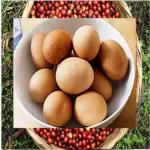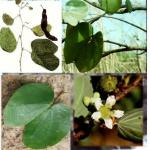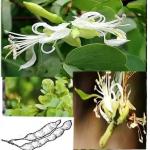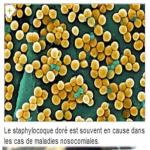Peanut
1-Identification
French name: Peanut
Click below to order clove oil
Scientific name: Arachis hypogaea
Family: FABACEES
Active substances: protein, vitamin E, mineral salts and trace elements.
Parts used: Leaves, seeds, oils, whole plant.
Habitat:
Peanuts, originally from Brazil, were introduced by Portuguese settlers to the west coast of Africa. It is now widespread throughout tropical Africa. It is also found in tropical America and Asia. Small annual herbaceous plant 15 to 30 centimeters high. The aerial parts of the plant are hairy except for leaves and flowers. Its alternate leaves consist of 2 leaflets without hair except on their margins. The oval limbus ends at a point. The flattened spine on the upper face has bristles at the edges. The aerial part supports solitary yellow flowers that are usually sterile. At the base, there are fertile flowers that sink into the soil to form elongated or almost circular pods containing 1 or 2 seeds, sometimes even 3 depending on the variety. These pods are marked by a network of ribs on a slightly reddish membrane
2-Properties
Remineralizing, aphrodisiac, diuretic and antibiotic.
3-Therapeutic indications
Male and female infertility, lactation problems, gonorrhea, anemia, etc
4- uses
-Diuretic
Since fresh leaves are rich in mineral salts, vitamins and trace elements, decoction restores blood volume and activates dieresis. Drink Three drinks a day for a week.
-Bleeding or gonorrhea.
In the evening, macerate in ½ liter of water a handful of fresh seeds from which the thin membrane has been removed. Drink the maceration the next morning on an empty stomach and eat the peanuts. Resume for 7 days of treatment.
Please reach us at http://wa.me//+22967546677
Click below to order clove oil
Book an appointment with lady feranmi on
Add a comment








